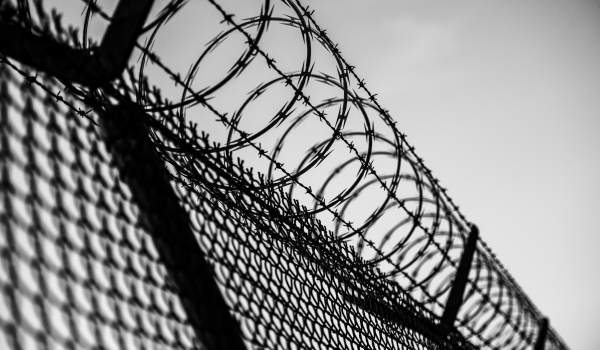In a previous Beyond the Classroom post, we discussed Prison Education and its potential for societal impacts as well as metrics to help academic leaders make decisions on program success. Let’s now flip the conversation and look at a tangential issue impacting career sustainability and student success: parental incarceration.
Parental incarceration affects millions of children, particularly in the United States, which we previously discussed has the world’s highest incarceration rate. The repercussions extend far beyond immediate emotional and financial strain, deeply influencing the educational trajectories of affected children. Let's dig into the impact of parental incarceration on college attainment, focusing on the scope of the problem, the role of stigma, academic strain, and long-term outcomes.
The Scope of the Problem
In the United States, approximately 2.7 million children (for perspective, that is roughly the population of the state of Mississippi) have an incarcerated parent, with a disproportionate number coming from minority and low-income backgrounds. These children face significant barriers to academic success from an early age. Research indicates that children of incarcerated parents are more likely to experience one or multiple combinations of the following outcomes: be placed in special education, held back in school, receive poor evaluations from teachers, demonstrate increased delinquency, and drop out of school (Turney & Goodsell, 2018). These academic struggles persist into adolescence and adulthood, significantly impacting college attainment.
The Role of Stigma
Stigma can be a real or perceived barrier and it is invisible on enrollment reports or in shiny analytical dashboards. However, stigmas have profoundly impactful consequences. Such is the case with the stigma of parental incarceration that children face. This stigma can lead to social isolation and emotional distress, further hindering academic performance. Dr. Marcus Shaw's research highlights the "transference of stigma," where children are judged and treated differently because of their parent's incarceration (Shaw, 2020). This stigma can affect their relationships, self-esteem, and even their opportunities for future employment. Stigmatization interferes with children connecting to others, finding a sense of belonging, and can lead to feelings of alienation and anxiety.
Academic Strain
Children of incarcerated parents often experience significant academic strain. Studies show that these children perform lower than their peers in the areas of vocabulary development, reading comprehension, math performance, and problem-solving skills (Morsy & Rothstein, 2016). They also exhibit increased levels of aggression and have shorter attention spans. The disruption caused by parental incarceration can lead to frequent school changes and a lack of continuity in education, making it difficult for children to keep up with their studies and maintain the grades necessary for college admission.
Long-Term Educational Outcomes
Given the challenges we’ve discussed so far, we begin to project why children who have incarcerated parents are less likely to complete high school and even less likely to attend or graduate from college. A study by the University of Notre Dame found that while teens with incarcerated fathers were optimistic about their futures, they had lower expectations of completing college, particularly among Black youth (Haskins, 2018). This lowered expectation is often a result of the compounded effects of stigma, financial hardship, and academic struggles.
Interestingly, not all research points to negative outcomes. A study conducted in Colombia found that parental incarceration could increase children's educational attainment by nine and a half months for those on the margin of incarceration (Mejia & Restrepo, 2018). This counterintuitive finding suggests that in some contexts, the removal of a parent who may be a negative influence could potentially create a more stable environment conducive to academic success. However, this is an exception, not the rule. These findings also highlight how complex this issue is and the impact on educational attainment, and longer term on that student’s career sustainability.
Support Systems and Interventions
To mitigate these negative impacts, several interventions and support systems have been proposed and implemented. One promising approach for students who regress to the point they find themselves incarcerated is the expansion of financial aid and educational programs for incarcerated. The reinstatement of Pell Grant eligibility for incarcerated students is a significant step in this direction (U.S. Department of Education, 2021). As we discussed before, the policy change combined with the availability of prison education programs will enable incarcerated individuals to pursue higher education, which can have a positive ripple effect on their families and communities.
Additionally, programs that facilitate ongoing relationships between incarcerated parents and their children can provide emotional support and stability. For example, some states have implemented policies to ensure that incarcerated parents can participate in parent-teacher conferences and stay involved in their children's education (Turney & Goodsell, 2018). These initiatives can help maintain a sense of normalcy and support for children, potentially improving their academic outcomes.
Conclusion
Parental incarceration poses significant challenges to children's educational attainment, particularly in terms of college completion. The compounded effects of stigma, financial hardship, and academic struggles create a formidable barrier to success. However, with targeted interventions and support systems, it is possible to mitigate these negative impacts and provide children with the opportunities they need to succeed. Expanding access to financial aid, facilitating parent-child relationships, and addressing the broader social and economic factors at play are crucial steps in supporting these vulnerable children and helping them achieve their educational goals.
References
Haskins, A. R. (2018). Paternal incarceration and children's schooling contexts: Intersecting inequalities of education opportunity. Sociology of Education, 91(2), 181-212. https://doi.org/10.1177/0038040718762990
Mejia, D., & Restrepo, P. (2018). The effects of crime and violence on educational outcomes in Colombia. Economics of Education Review, 67, 1-15. https://doi.org/10.1016/j.econedurev.2018.09.001
Morsy, L., & Rothstein, R. (2016). Parents' incarceration takes a toll on kids' education. Economic Policy Institute. Retrieved from https://www.epi.org/publication/parents-incarceration-takes-a-toll-on-kids-education/
Shaw, M. (2020). The transference of stigma: The impact of parental incarceration on children. Journal of Criminal Justice, 68, 101-110. https://doi.org/10.1016/j.jcrimjus.2020.101110
Turney, K., & Goodsell, R. (2018). Parental incarceration and children's wellbeing. Future of Children, 28 (1), 147-164. https://doi.org/10.1353/foc.2018.0007
U.S. Department of Education. (2021). U.S. Department of Education expands second chance Pell experiment, providing Pell grants to incarcerated students. Retrieved from https://www.ed.gov/news/press-releases/us-department-education-expands-second-chance-pell-experiment-providing-pell-grants-incarcerated-students





